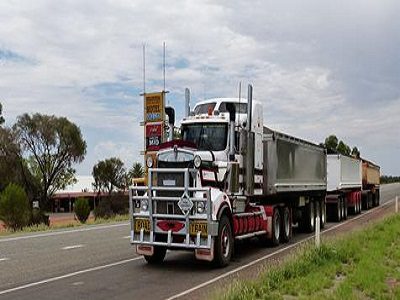
May 24, 2017
It used to be that the coolest kids in class — whether it was the class of 1977, 1987, 1997 or 2007 — never gave a minute of thought to entering the trucking business.
But suddenly — or so it seems — some of the very coolest kids from any class ever have aimed their sights on trucking. Both Uber — which over the last five years has disrupted the taxi business and become the de facto replacement for millennials’ personal cars — and Tesla — the ultra-cool maker of sleek, high-performance electric cars and part of Elon Musk’s stable of outrageously cool companies like Space X and PayPal — are scrambling to get into trucking.
Tech Giants
That such forward-thinking technology players have targeted trucking as their next realm of disruption and conquest certainly can be viewed with alarm by long-established trucking industry players from huge fleet operators to solo owner/operators. And the concern understandably extends to non-driving members of the industry, too, like freight brokers, maintenance and support services providers, technology vendors, truck and equipment makers, and the financial companies who help keep the industry’s wheels greased with capital and liquidity.
But there’s another, decidedly more positive way to view these very well-financed, and very powerful “cool kids” new-found interest in trucking. They obviously see trucking as an industry with lots of potential for increasing revenue and profits over a very long period of time. So that’s great news for the industry’s established players, of all sizes. The industry’s future is bright, despite its current operational and financial challenges and the prophets of doom who predict only struggle and decline ahead.
Betting on autonomous vehicles and freight brokerage
Musk, whose ambition is to live such an adventurous and technologically advanced life that he will die on Mars (and not, as he always is quick to add, by crashing into it), made a big splash last year by announcing plans to build an all-electric Class 8 truck that eventually will compete with rig makers Daimler, PACCAR, Volvo, and Navistar and with powertrain manufacturers like Cummins.
Uber, which last year bought OTTO, the start-up that aims build auto drive-assisted trucks and eventually fully self-driving trucks, also has big plans for bringing a scaled-up version of its digital passenger ride hailing service to the freight brokerage side of the trucking industry. And they’re not the only cool kids getting into the trucking business. Nikola Motors is working on a hydrogen fuel cell-powered truck. And China’s BYD already is building all-electric yard trucks to move containers and trailers around intermodal shipping centers. Many believe it to be also working on ways to add strong enough and lightweight enough batteries to give such vehicles the added range they would need to work economically on long-haul routes.
Competing will require understanding, embracing
new technologies
Of course that means existing trucking industry participants will need to pay attention not only to today’s operations but tomorrow’s as well. They’ll need to make smart, well-informed choices about what technologies they need to be acquiring and mastering, and what equipment they will need to remain competitive both before and after these “cool kids” begin to make noticeable splashes in the market. They’ll also need to think long and hard about the business practices that will have to be adapted, discarded, or acquired to compete in the not-too-distant future.
Freight brokers, for example, need to gain a very clear understanding of the technologies they will need (and the ones they won’t need) to compete in an Uber-disrupted market. That company’s existing consumer ride-hailing practices won’t automatically transfer to trucking, where matching a load with the right truck is a far more complex task. But the basic principle makes sense, so brokers must decide whether they can or should invest in similar technologies to compete head-on with Uber (and perhaps others), of if they can find different, technology-based solutions that could potentially give them a cost and/or service advantage over a competitor like Uber.
Similarly, trucking companies themselves will need to increase their understanding of technology in order to make the best decisions possible on ways to squeeze more costs out of their operations while generating more revenue per mile. Will their scale of operations make them competitive against new technology trucks, or will they need to acquire new technology trucks to remain competitive? Ironically, technology itself, in the form of sophisticated business management and analytical software tied into the hundreds of data streams already available will play a key role in making those types of decisions.
So while the arrival of the “cool kids” in the trucking industry is nothing to sniff at or ignore, it’s also good reason to be excited. The trucking industry is entering a new and exciting era of development and advancement driven largely by significant advances in technology. And as a result, the future is bright.
In1go Technologies Inc. provides a wide range of comprehensive and fully-customizable solutions for Supply Chain Management. We offer GPS, Delivery Tracking, Yard Management, Dispatch Management, Route Optimization, Mobile Delivery Systems etc.
This article originally appeared on www.omnitracs.com
